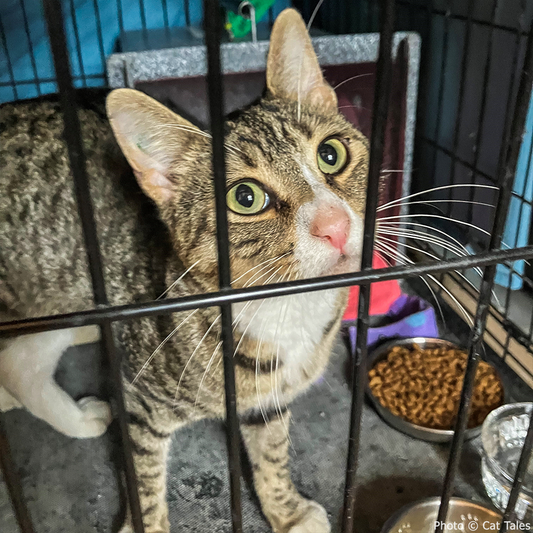Study Finds Artificial Intelligence Can Predict Pancreatic Cancer 3 Years Early
Malorie Thompson
Technology and artificial intelligence are rapidly transforming the way we live and work, and their impact is only expected to grow in the future.
While many people are hesitant about the impact AI could have on our lives, others are looking to use it in the best way possible.
 Photo: Pexels/Rahul Pandit
Photo: Pexels/Rahul Pandit
From autonomous vehicles to voice-activated assistants, AI-powered technologies are making life more convenient and efficient in many ways. In fact, AI may even help save lives, according to a new study.
The study, "A deep learning algorithm to predict risk of pancreatic cancer from disease trajectories," was published in the journal Nature Medicine this week and shows how potential cases of pancreatic cancer could be spotted by using an AI-based population screening.
According to Nature Portfolio, population screening involves "assessing the prevalence of a particular trait in the entire population or in a subgroup of the population." It's performeed using genetic or other testing means to determine the presence of genetic characteristics and/or biomarkers.
 Photo: Pexels/Tima Miroshnichenko
Photo: Pexels/Tima Miroshnichenko
To conduct the study, researchers from Harvard Medical School and the University of Copenhagen collaborated with the VA Boston Healthcare System, the Dana-Farber Cancer Institute and the Harvard T.H. Chan School of Public Health. They used an AI algorithm to assess clinical data from 9 million paitents from Denmark and the United States.
The researchers trained AI learning models to read paitents' charts and connect diagnosis codes to pancreatic cancer.
Incredibly, researchers found that using the AI to assess pancreatic cancer risk was "substantially more accurate at predicting who would develop pancreatic cancer than current population-wide estimates of disease incidence."
 Photo: Pexels/Anna Tarazevich
Photo: Pexels/Anna Tarazevich
Study supervisor Chris Sander of Harvard Medical School explained in a press release that clinicians have to make crucial decisions regularly regarding identifying people who are at high risk of a disease and would benefit from further testing, even though it might involve costly, invasive procedures with associated risks.
"An AI tool that can zero in on those at highest risk for pancreatic cancer who stand to benefit most from further tests could go a long way toward improving clinical decision-making," he said.
While having early screening and diagnosis of any cancer can be beneficial, it's especially important for pancreatic cancer since many people discover they have it far too late. According to the Cleveland Clinic, "pancreatic cancer survival rates are low because the disease is difficult to detect in the early stages."
 Photo: Pexels/Edward Jenner
Photo: Pexels/Edward JennerThe five-year survival rate for pancreatic cancer in the United States is just 11% - that means for every 100 people diagnosed with pancreatic cancer, only 11 will survive five years. Having an AI screening tool could be the difference between early and late-stage diagnosis which could save countless lives.
It'll be interesting to see how this technology continues to advance and be used to benefit society.

Malorie works as a writer and editor in Northern California. She's passionate about food, conscious living, animal welfare, and conservation. She's worked with a variety of publications in different sectors but is happiest covering topics close to her heart. When not at her laptop, Malorie can be found enjoying picnics on the beach, hiking in the redwoods, and spending time with her rescue pup, Jax.




















